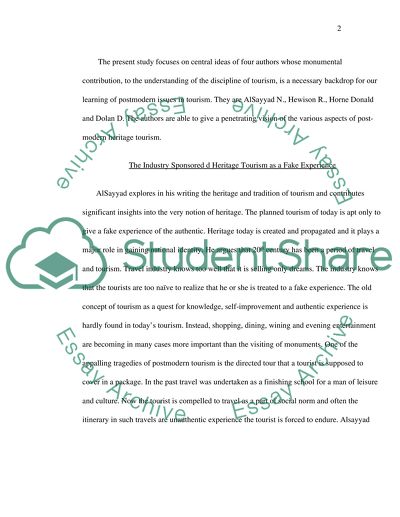Cite this document
(Heritage Tourism in the Context of Globalization Case Study, n.d.)
Heritage Tourism in the Context of Globalization Case Study. Retrieved from https://studentshare.org/tourism/1521297-heritage-tourism
Heritage Tourism in the Context of Globalization Case Study. Retrieved from https://studentshare.org/tourism/1521297-heritage-tourism
(Heritage Tourism in the Context of Globalization Case Study)
Heritage Tourism in the Context of Globalization Case Study. https://studentshare.org/tourism/1521297-heritage-tourism.
Heritage Tourism in the Context of Globalization Case Study. https://studentshare.org/tourism/1521297-heritage-tourism.
“Heritage Tourism in the Context of Globalization Case Study”, n.d. https://studentshare.org/tourism/1521297-heritage-tourism.


